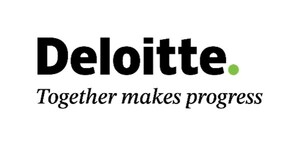
SAN FRANCISCO, Dec. 14, 2016 /PRNewswire/ -- Deloitte today released the "2016 Shift Index," an analysis of the long-term forces reshaping the global business landscape. Deloitte's study shows that as global information platforms continue to expand across sectors like mobility and artificial intelligence, the ability of individuals and institutions to evaluate and make use of data has not kept up with the speed at which it is created, disseminated and consumed. The resulting gap is causing real economic dislocation, in addition to a more general disorientation and anxiety.
The Shift Index measures long-term trends in 25 metrics across three categories: Foundations, Flows and Impact. These broad trends have been building for decades, yet they don't affect all industries or regions equally or at the same time. Overall, while many of the trends have remained stable, the study indicated cumulative effects of technological advances and demographic changes, and specifically the chase to harness the massive amounts of data available today, have led to increased stress and anxiety amongst companies and workers. The exponential curve gets steeper when you consider the convergence of multiple exponentially advancing building blocks in computing, storage and bandwidth into technologies like cloud computing, biosynthesis and 3D printing.
The study indicated companies aren't necessarily benefiting from the technology and policy trends. In fact, the Impact index shows that although, labor productivity continues to increase, firm performance as measured by return-on-assets (ROA), continues to decline economy wide, especially for companies in the bottom quartile – a trend that has persisted for over 50 years. Moreover, quantitative and sentiment- and headline-based, stock market volatility is ticking upward again after declining from the peak of 2008.
"The Big Shift will ultimately require large-scale organizational transformation," said John Hagel, managing director, Deloitte Consulting LLP and co-chairman, Center for the Edge. "Our research suggests that given the powerful immune systems of large institutions, one of the most promising ways to embark on this journey is by 'scaling an edge,' and identifying two to three short-term initiatives that can accelerate their progress toward that opportunity, rather than taking a top-down, big bang approach to transformation."
The report notes that companies that want to begin pursuing edge initiatives to accelerate progress toward transformation can take a page from the startup world: relying on cloud resources and using platforms to access people and other resources. This will allow companies to pursue short-term initiatives with minimal investment, enabling them to learn and begin developing the capabilities needed for the long term without exciting the corporate antibodies.
The personalization available in today's technology, also provides a great resource for reaching new consumers. For example, products like fitness trackers can now gain an increasingly intimate view of the consumer's daily life through data flows. It is also now easier than ever for individual entrepreneurs to learn skills, and then develop and market a product that can reach millions of potential customers.
Companies are under mounting performance pressures and so are their workers. There's a significant paradox underlying the "Big Shift" – while customers are gaining more power, the same individuals are feeling far less secure as pressures mount on the companies that employ them. As long-term profits erode and topple rates rise, more and more people are understandably anxious about job stability.
This pressure can lead to a narrower focus, causing institutions and individuals to hone in on isolated issues while missing the broader picture of the Big Shift. For example, there is clearly a re-examination of globalization in motion. There's a temptation to focus on issues that seem easier to address through a specific policy or strategy. However, trade is just one of the forces creating and intensifying pressure, and by just focusing on trade or jobs fails to address the more complex web of flows that are reshaping our economic and social systems. Crafting effective solutions that will create new opportunity and drive higher levels of performance requires understanding and addressing the broader picture of the Big Shift.
"This is a transitory phenomenon – the double-edged sword of flow and the anxiety of broad change," Hagel said. "The good news is that, if properly harnessed, these flows enable small moves, smartly made, to set big things in motion. The challenge for all is to make these small moves quickly, so that more tangible evidence can be provided of the positive impact that can spark hope and diminish fear."
Connect with us on Twitter: @jhagel; @C4Edge.
About Deloitte
Deloitte provides industry-leading audit, consulting, tax and advisory services to many of the world's most admired brands, including 80 percent of the Fortune 500. Our people work across more than 20 industry sectors to deliver measurable and lasting results that help reinforce public trust in our capital markets, inspire clients to make their most challenging business decisions with confidence, and help lead the way toward a stronger economy and a healthy society.
As used in this document, "Deloitte" means Deloitte LLP and its subsidiaries. Please see www.deloitte.com/us/about for a detailed description of the legal structure of Deloitte LLP and its subsidiaries. Certain services may not be available to attest clients under the rules and regulations of public accounting.
SOURCE Deloitte






Share this article